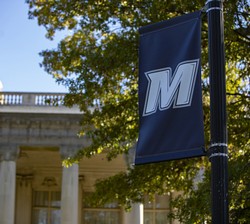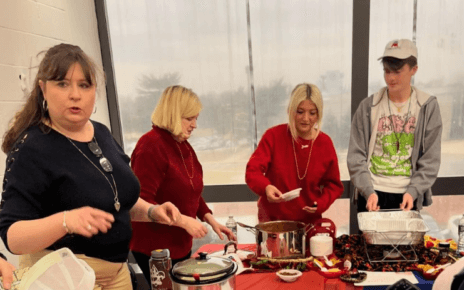Counseling and Psychological Services, Professors United for Safe Haven (PUSH), and the Intercultural Center teamed to host a virtual post-election community discussion via Zoom on Friday, Nov. 6.
Coordinated by Chris McKittrick, Ph.D. Assistant Director of Counseling and Psychological Services; Zaneta Rago-Craft, Ph.D. Director of the Intercultural Center; and Amanda Stojanov, PUSH Faculty Organizer and Assistant Professor of Digital Media, the meeting posed questions on the current political climate surrounding the presidential election and its impact on the Monmouth community.
McKittrick emphasized basic guidelines to establish the mood of the discussion before bringing up topics. “This is a safe space for all,” McKittrick said. “A place where everyone can voice their opinions without fear of ridicule or criticism.” McKittrick also challenged those present to “…go outside [their] comfort zones because all feelings are valid.”
Rago-Craft mirrored McKittrick’s sentiments by asking attendees to listen with the desire to understand, rather than listening to simply respond.
“If an individual is to challenge someone else’s views during the meeting, [I ask that] that he/she challenges with care and respect,” Rago-Craft said.
The first discussion topic asked the attendees to compare their feelings a month ago to the present day. Many participant voiced their discontent and anxiousness for not only the results of the election, but also how the outcome will influence American morale. One participant stated, “I am fearful for myself, my family, and my friends regardless of the outcome; this is not a fear that will dissipate even after the election.” McKittrick responded by acknowledging that “… most of our expectations will not be met, no matter where you politically stand.”
The next few discussion topics focused on the present condition of the community. Rago-Craft asked attendees their methods of taking care of themselves amidst such a stressful time. For a few, the act of unplugging from social media and other news outlets helped relieve some of the constant worry. Others attendees felt more at ease when they reached out to friends and family to “process the information together,” explained one participant.
“There is a silver-lining to every bleak situation,” Rago-Craft said. “The civic turnout and engagement as a result of this election is outstanding.”
The following question asked the ways attendees’ cared for those within their own circles. “I did my best this past week to relieve my students of unnecessary classwork,” a faculty member stated, recognizing how the election may personally affect her students. Other attendees stated that checking in on others was helpful for their own well-being.
“Checking in on people whose voices are not necessarily heard on a macro level allow us to take personal anxious energy and make it productive,” McKittrick said.
Leading up to the end of the discussion, Rago-Craft asked the group “what they need right now.” “I need a break from technology;” Stojanov replied. This sentiment was shared by a majority of the attendees, as participants compared what they needed to what they were actually doing.
To conclude the meeting, Rago-Craft urged the attendees to reflect and contemplate on one last question: “Regardless of who wins or has won the election, what will I do, and who will I be, relating to my relationship with others?”
PHOTO COURTESY of Anthony DePrimo



